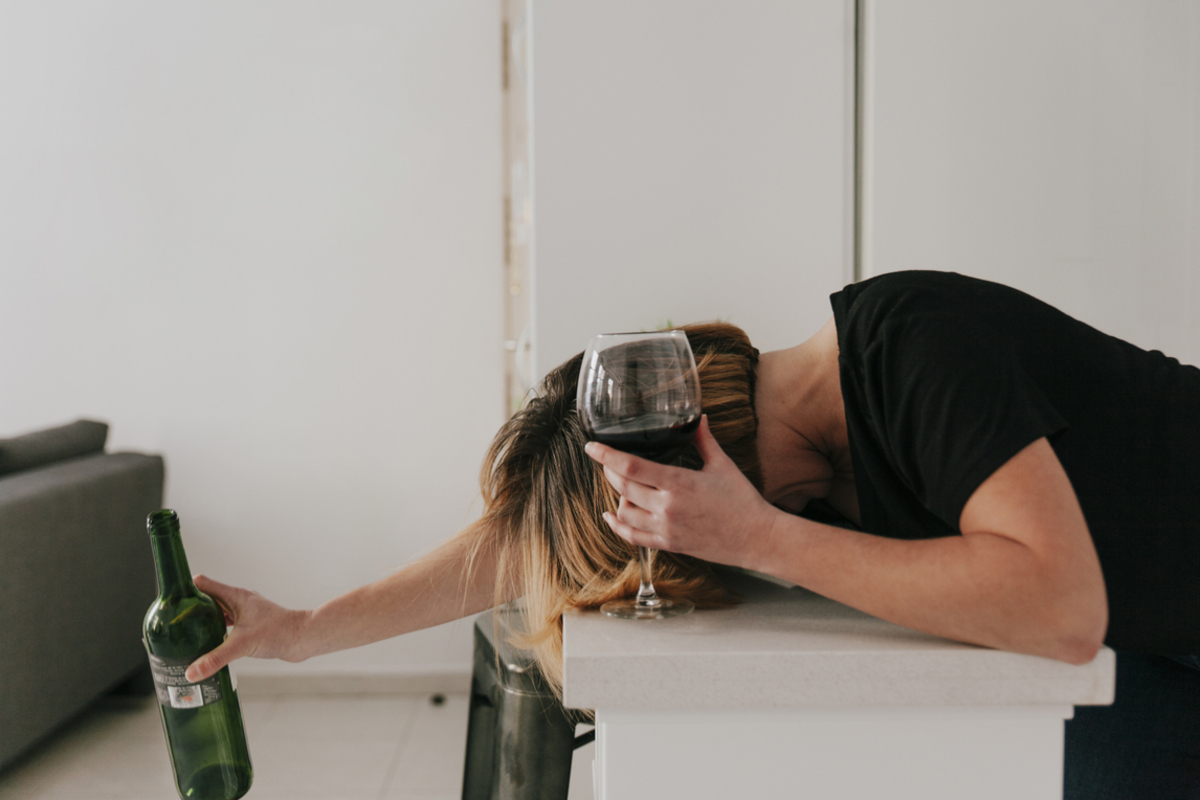If drunkorexia sounds like a word provocatively coined by a tabloid writer with a penchant for silly puns or a bunch of millennials having fun with words, that's because it is. The phenomenon has drawn quite a lot of attention from academic circles, and one or the earliest academic papers on drunkorexia actually cited the Urban Dictionary and CBS Showbuzz.

If you've ever done this or been tempted to, this piece is for you.
What is drunkorexia?
Although it isn't (yet) an official diagnostic category, one study identified three possible manifestations of drunkorexia:
- Skipping meals to "make space" for the calories you're planning to get from drinking alcohol, or to make up for excess alcohol you've already consumed.
- Excessive exercise to create a calorie deficit again after you've been drinking.
- Perhaps, in a way, most extreme, the third possible way in which drunkorexia can express itself is purposely consuming so much alcohol that you vomit — in order to purge previously consumed meals.
While this phenomenon certainly involves disordered eating or other unhealthy behaviors aimed at weight control, it's at its core a substance-abuse issue, because it features people who care about maintaining a certain weight — but not enough to reduce their alcohol intake. Drunkorexia appears to be more common in women, probably because they are under more social pressure to look skinny.
Drunkorexia has many faces. One of them is my friend, a middle-aged mom of four who decided, a few years after she stopped nursing her youngest, to set off on a weight-loss quest. "Yeah, so the c-section scar, stretch marks, and belly pouch aren't going anywhere, but I figured I could stop being fat," she shared. So she tried.
The problem? "I juggle a large family with a full time job, and I also have an anxiety disorder. So, unless I'm breastfeeding, I usually crack open at least two cans of beer a night, just to help me unwind to the point I can actually go to sleep." We were actually weight-loss buddies who morally supported each other through the process, so at some point, she shared that she plans those beers right into her daily calorie budget. That means, you guessed it, that she reduced the calories she got from food.
My friend's daily alcohol intake placed her above the amounts recommended for women, but she wasn't an alcoholic — and has, in fact, stopped drinking altogether since starting therapy for her anxiety.
Other faces of drunkorexia could include heavy alcoholics who get a majority of their daily calories from booze, as well as young people (especially college students, research indicates), who adjust either their eating habits or their exercise schedule to plan or make up for binge-drinking sessions. Heck, even you could be a face of drunkorexia.
Have you ever engaged in drunkorexic behaviors? Here's why it's a bad idea
The fact that alcohol contains rather a few calories is undeniable. You'll find:
- 126 calories in a 175ml glass of wine with an alcohol content of 12 percent.
- 215 calories in a pint of five-percent beer.
- 237 calories in a 330ml bottle of alcopop (like Smirnoff Ice or Bacardi Breezer, or whatever kids are drinking these days)
One drink won't make that much of a dent in your daily calorie budget, but binge-drinking will create a surplus in no time at all. If skipping meals before drinking seems like a harmless cautionary practice to you, remember that:
- Alcohol offers nothing but empty calories — those drinks offer no or nearly no nutritional value (vitamins and minerals).
- Skipping meals will get you drunk an awful lot more quickly.
- Alcohol actually reduces your body's fat-burning rate. Because alcohol is still, technically, a poison, your body will make eliminating it from your system its most important job when you're intoxicated — and this process takes precedence over fat burning.
People who are trying to lose weight responsibly, because they are overweight, should consider quitting alcohol (see: Weight loss: How much of a difference can giving up alcohol make?) before they think about exercising more or skipping meals specifically so they can keep drinking too much.
For those who can't, drunkorexic behaviors could be a serious sign that they may have developed an alcohol use disorder, as well as very possibly an eating disorder. If you have tried to cut down on your alcohol consumption but found you still drink more than you planned to, crave alcohol, and keep on making weight-related decisions that allow you to keep drinking without gaining weight, that's a red flag. Drunkorexia may not yet be an official diagnostic category, but your doctor is still there to help.


Your thoughts on this